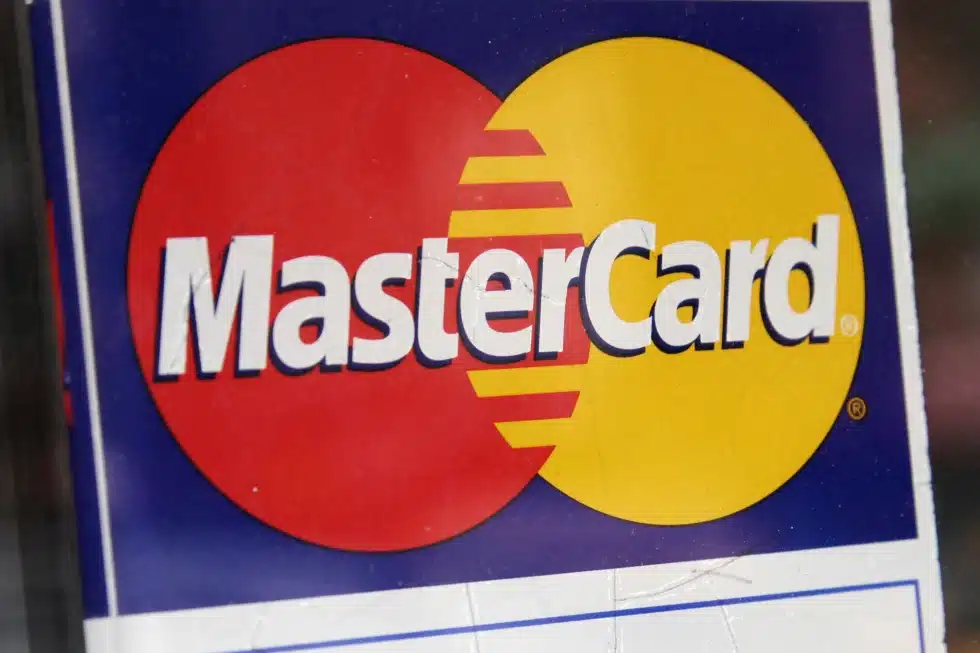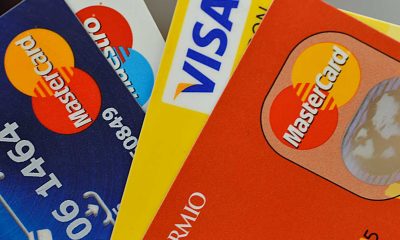Business
Using AI, Mastercard Expects To Find Compromised Cards Quicker, Before They Get Used By Criminals

NEW YORK — Mastercard said Wednesday that it hopes to detect that your credit or debit card number has been compromised long before it falls into the hands of a cybercriminal.
Mastercard’s most recent software upgrade incorporates artificial intelligence into its fraud-prediction system, which it hopes will allow banks to replace stolen cards before criminals use them.
“Generative AI is going to allow us to figure out where you possibly got your credentials compromised, how we can identify how it happened, and how we can very quickly remedy that situation not only for you, but also for other customers who don’t know they are compromised yet,” said Johan Gerber, executive vice president of security and cyber innovation at Mastercard, in an interview.
:max_bytes(150000):strip_icc()/MClogo-c823e495c5cf455c89ddfb0e17fc7978.jpg)
Mastercard | Investopedia Image
Using AI, Mastercard Expects To Find Compromised Cards Quicker, Before They Get Used By Criminals
Mastercard, based in Purchase, New York, says that with this new update, it can use other patterns or contextual information, such as geography, time, and addresses, and combine it with incomplete but compromised credit card numbers that appear in databases, allowing it to reach cardholders sooner and replace the bad card.
The patterns can now be applied in reverse, potentially employing batches of faulty cards to identify potentially hacked businesses or payment processors. According to Gerber, pattern identification goes beyond what humans can perform with database queries or other typical approaches.
Billions of stolen credit and debit card numbers are floating on the dark web, ready for purchase by any thief. Most were stolen from merchants in data breaches over the years, but a substantial number were stolen from unwary customers who used their credit or debit cards at the incorrect gas station, ATM, or online shop.
These compromised cards may go undiscovered for weeks, months, or even years. Only when the payment networks themselves dig into the dark web to look for stolen numbers, a merchant discovers a breach, or a criminal uses a card do the payment networks, and banks realize a batch of cards may be compromised.

Mastercard | Youtube Image
Using AI, Mastercard Expects To Find Compromised Cards Quicker, Before They Get Used By Criminals
“We can now actually proactively reach out to the banks to make sure that we service that consumer and get them a new card in her or his hands so they can go about their lives with as little disruption as possible,” Gerber stated.
The payment networks are primarily attempting to transition away from “static” credit card or debit card numbers — card numbers and expiration dates that are used consistently across all businesses — and toward unique numbers for specific transactions. However, that transformation could take years, especially in the United States, where payment technology uptake is typically slow.
While chip cards are currently used in more than 90% of all in-person transactions worldwide, EMVCo, the technological body behind the chip in credit and debit cards, estimates that the proportion in the United States is closer to 70%.

Mastercard | Mastercard Image
Using AI, Mastercard Expects To Find Compromised Cards Quicker, Before They Get Used By Criminals
Mastercard’s announcement comes as its main competitor, Visa Inc., looks for ways to force users to discard their 16-digit credit and debit card numbers. Visa revealed big changes to how credit and debit cards will work in the United States last week, implying that Americans will carry fewer physical cards in their wallets and that the 16-digit credit or debit card number inscribed on each card will become less relevant.
SOURCE – (AP)































